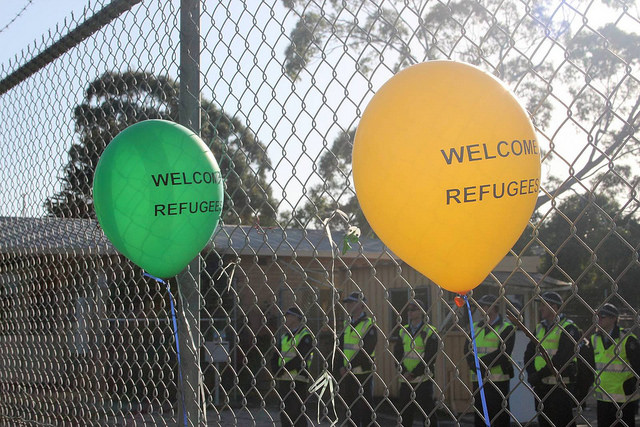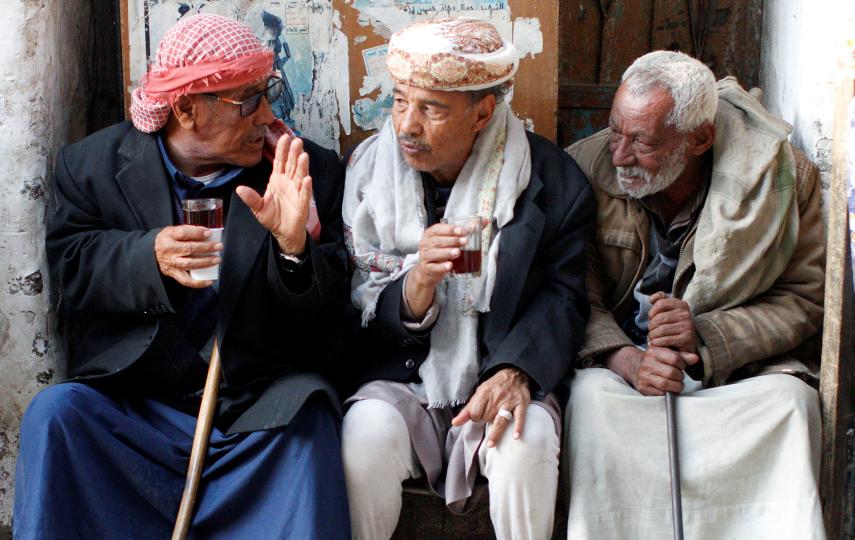Which humanitarian topics are on IRIN’s radar and should be on yours? Check out our curation of upcoming events, topical reports, opinion, and quality journalism:
Australia fails refugees – again
The UN refugee agency, UNHCR, issued a strongly-worded statement this week accusing Australia of reneging on a promise to resettle some refugees from its offshore detention centres. Australia’s refugee policies have come under fire for years, because, in the words of UNHCR, they have “caused extensive, avoidable suffering for far too long”. For more detail, see this IRIN article. While UNHCR has condemned the policies, it had agreed “in light of this dire humanitarian situation” to assist in the resettlement of some refugees being held in Papua New Guinea and Nauru to Australia, where they had close family ties. Now that Australia has backed out of the deal, UNHCR will need to lobby the United States to take them in.
Let’s talk Libya
This week saw French President Emmanuel Macron broker talks between two rival leaders – UN-backed Prime Minister Fayez al-Sarraj and Khalifa Haftar, who holds sway in much of the country’s east. The Paris meeting appears to be have been a success – a ceasefire and elections for early next year were promised. However there are more than two groups vying for authority in Libya and the deal allows militias to fight terrorism, an out that feels worryingly open to interpretation. Macron’s solo attempts to stop the violence in Libya have angered Italy – ministers said he is getting in the way of UN-EU led attempts to make peace, and giving too much weight to strongman Haftar. The International Criminal Court said it would make Libya a priority this year, and perhaps even investigate crimes against migrants. But as our analysis this week lays out, it hasn’t made much headway towards ending impunity of any sort on the ground. Will Macron at least make progress on the diplomatic front?
Five threats to peaceful elections in Kenya
Kenya is tense as it heads to elections on 8 August. In the lead-up to the voting there have been worrying signals (as well as some signs of reform and progress) over the potential for violence, says this blog by Dorina Bekoe of the Africa Center for Strategic Studies. Five issues will be important to monitor. Firstly, the electoral field is much larger: approximately 14,550 candidates are competing, up from 12,776 in 2013 – increasing the risk of trouble. Secondly, a perception of impunity hangs over these elections with the collapse of the International Criminal Court cases against those accused of violence in 2007-2008. Thirdly, the opposition NASA alliance has already accused the state electoral authority of planning to steal the ballot. Fourthly, outbreaks of election-related violence have already been underway for much of the year. Finally, Kenya’s devolution from eight provinces to 47 counties is likely to push violence to the subnational level, which could be just as bitter.
Heightening tensions in the Himalayas
There's a military standoff simmering on the roof of the world, where soldiers from China and India stare each other down from a distance of only a couple hundred feet. As this New York Times piece explains – with the help of a couple of handy maps – the incident began in a remote mountain pass, which is claimed by Bhutan, China and India. Bhutan discovered Chinese workers extending a road into the area and notified its ally, India, which dispatched troops. China has demanded that India pull back, and the state-linked Global Times newspaper warned that Beijing may: “resolve the conflict through non-diplomatic means.” It’s no idle threat, say analysts who warn that the situation is similar to a border dispute in 1962 that sparked a brief war between the countries, which now both have nuclear weapons. As tensions heat up high in the Himalayas, here’s hoping cooler heads will prevail this time.
Voices from Syria
After more than six years of war, it can be hard to cut through the noise about high-level negotiations ,ceasefires, rebel splits, and to what they all mean for ordinary Syrians. Northwestern University professor Wendy Pearlman has managed just that in her well-reviewed new book We Crossed a Bridge and It Trembled: Voices from Syria. She’s spoken to (mostly anti-regime) Syrians about their lives before and after the war, through the uprising, the fighting, and flight from home. The testimonials include intimate details that combine to make a strong narrative. Here’s a taster:
Talia, TV correspondent (Aleppo)
The night before I left was the longest night of my life. I was alone with the kids, and the planes were in the sky all night. The sound of planes is scarier than the sound of barrel bombs, because you hear them and wonder when the bombs will drop. The waiting is harder than the actual attack.
I didn’t know if we’d leave the next day, or if this would be the night that we died. I had seen children torn in pieces before, but I wasn’t strong enough to see my own kids in that state. I needed to get them to safety.
The kids woke up and I got them dressed. I got two pieces of paper and wrote our names and phone numbers and put them in their pockets. That way, if someone got killed, people would know their identities.
I waited for the driver outside. I kissed the walls on the street, because I knew that I was never coming back to them.
Did you miss it?
The Iraqi siege you’ve never heard of
Now that Mosul has been liberated, Hawija is the largest territory controlled by the so-called Islamic State (IS) in Iraq. Even if residents defy odds and risk execution to escape to Shirqat, they are met with constrained resources for food and health services, exacerbated by a lack of their own documents. Some feel the greatest danger, though, lies in revenge attacks against those suspected of being IS sympathizers. A fear borne out in other liberated cities of Iraq. Stay tuned as Hawija moves to the top of the queue for liberation from IS.
jf-as-oa-bp-so-wp





